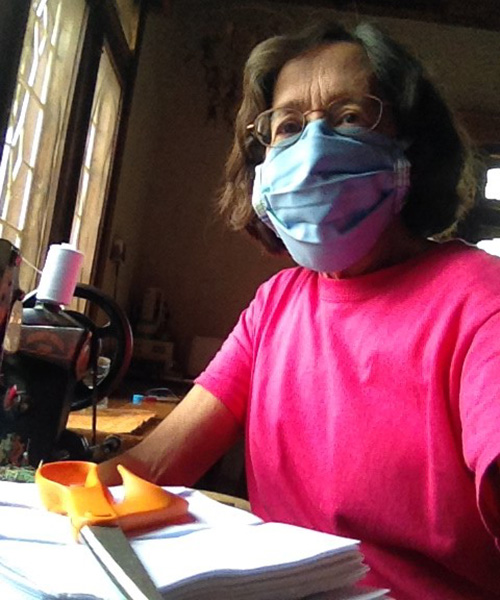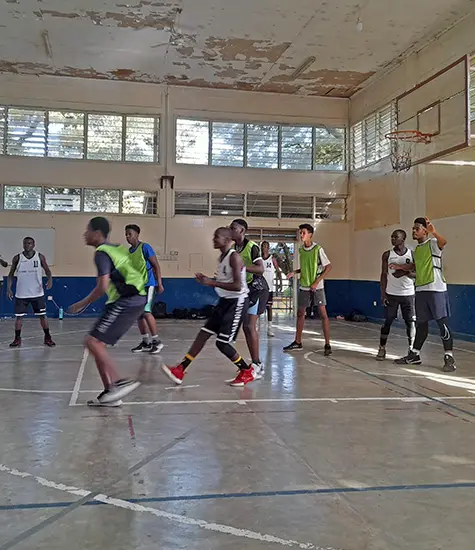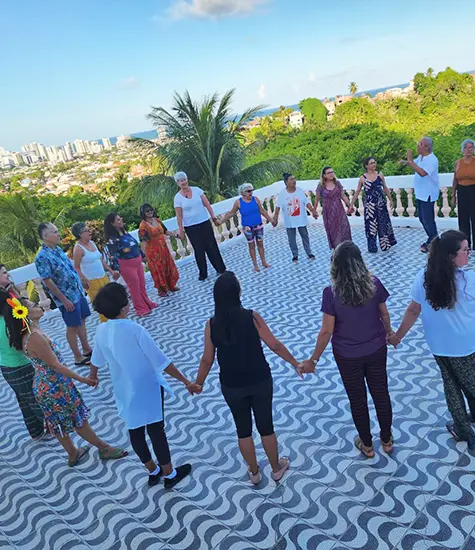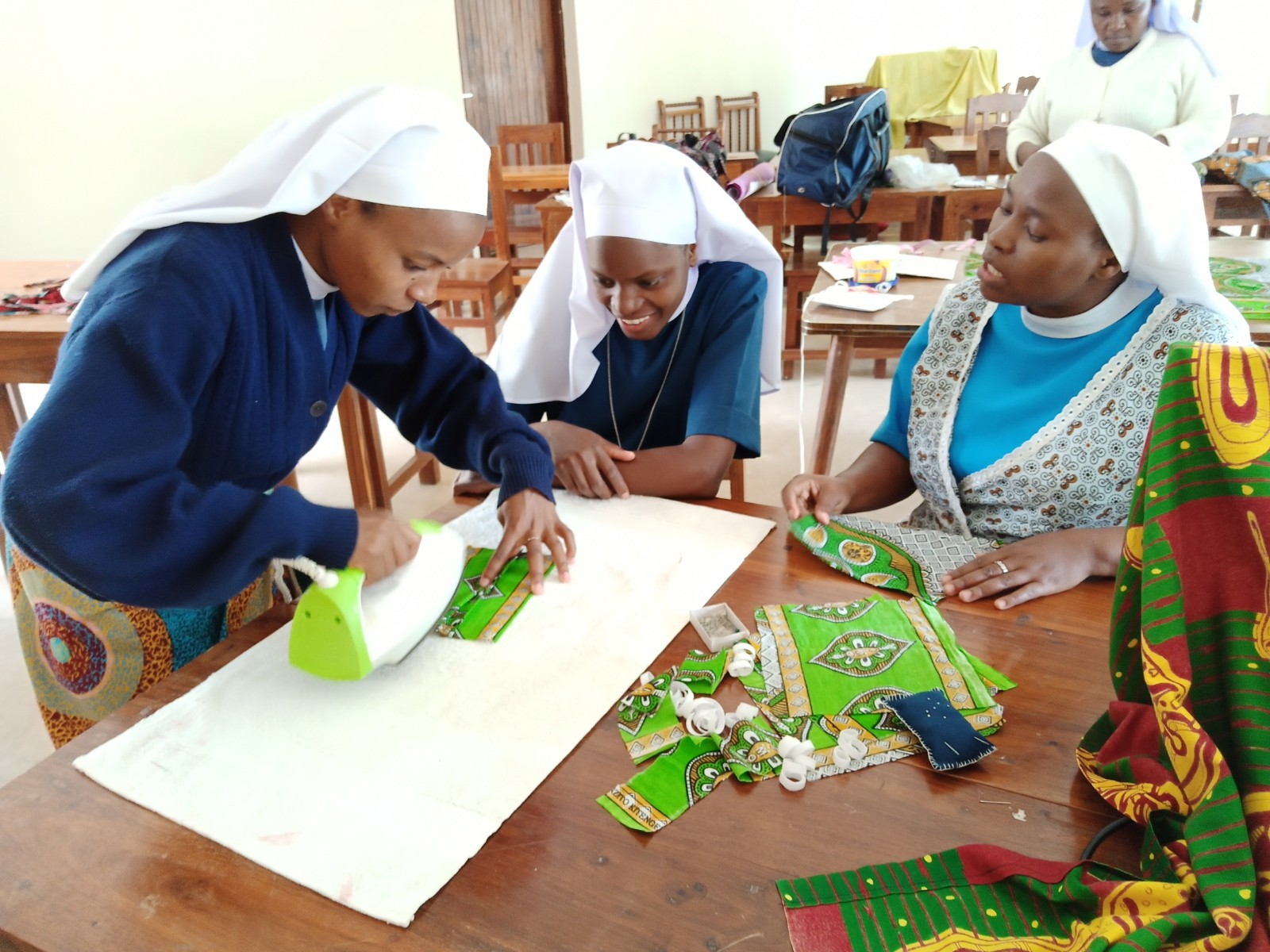
Immaculate Heart Sisters of Africa ironing masks in Musoma
Coronavirus is coming! The Global South, including East Africa and Tanzania, has been behind the curve as COVID-19 has swept through developed nations after its terrifying debut in China. Maryknoll lay missioners, talking to family back home in the hard-hit U.S., have been both concerned about the virus and sharing ideas with the communities we work with for how to be prepared to reduce the spread of the virus.
Tanzania, in contrast to many other countries, has not imposed a lockdown, although restrictions are in place on most large gatherings (with the exception of religious services) and schools have been closed. With many of our ministries affected by these restrictions (and other prudent preventative measures), missioners also have the opportunity to work on COVID-preparedness with their communities. As certain states in the U.S., and then the CDC, adopted advisories for wearing masks in public, missioners in Tanzania started experimenting with making masks and teaching people we work with how to make them. Orders for masks started coming in fast, as case numbers in Tanzania started to climb and an advisory to wear masks was issued in the large coastal city of Dar es Salaam.
Joanne Miya and Vipaji Vyetu groups
Groups of people affected by or living with HIV at Uzima Centre, where Joanne Miya is in ministry, have been making handi-crafts and selling them mostly to visitors and friends in U.S. for years. The proceeds help teens in their program cover school costs. In hopes of tapping into the small tourist market, and growing Tanzanian middle class, they recently formed a joint venture with four other charities that had been making similar products and opened a craft shop in downtown Mwanza.
In March Joanne started researching simple patterns for fabric masks, and soon members of three of the groups were learning to sew masks. On April 10 production started, and by the end of the month more than 1,000 masks had been made and sold by the groups! In the severe slowdown that the shop would have faced due to flights being suspended and international visitors being unable to visit, the orders for the masks were timely!
The sewing machines common here in Tanzania are manual-operated treadle sewing machines (more reliable with intermittent electricity), and on average the women were sewing 10-12 masks a day each. Each mask is sold with instructions on proper “wear and care” of the masks. The masks sold are being worn by individual customers around town, in the densely populated urban neighborhood of Mabatini, where Maryknoll has worked for 15 years, and by community health workers accompanying rural women in labor.
Joanne shared the pattern that her groups developed with other Maryknoll lay missioners in the region, and within a couple of weeks it seemed like most of us were making masks!
Liz Mach teaches IHSA sisters in Musoma
Liz Mach works with the Immaculate Heart Sisters of Africa in Musoma. The sisters were also interested in making masks, and Liz used Joanne’s step-by-step instructions to teach 15 sisters. The first masks they made were for the sisters who are older and living in the retirement facility and in the infirmary and those who work with them. They are now making masks for other sisters, with the objective that all sisters in their community will be protected with masks.
The sisters also run Rosemiriam Dagg Center, a vocational training school, where missioner Angelica Ruppe has been in ministry and where young women learn to sew. Though the school is closed, the sisters are putting the sewing machines to work making masks and filling orders that have been coming in fast. They’ve also made masks for the few children and staff still staying at their St. Justin’s Centre for Children with Disabilities. Liz has also been making masks for staff at the Musoma diocese, using a machine on loan from Rosemiriam Dagg.
Though having returned to Oregon just before international flights were cancelled, Angelica is also making masks as part of a local group. She’s also been working with a community garden and distributing produce from the garden to a food bank in the area.
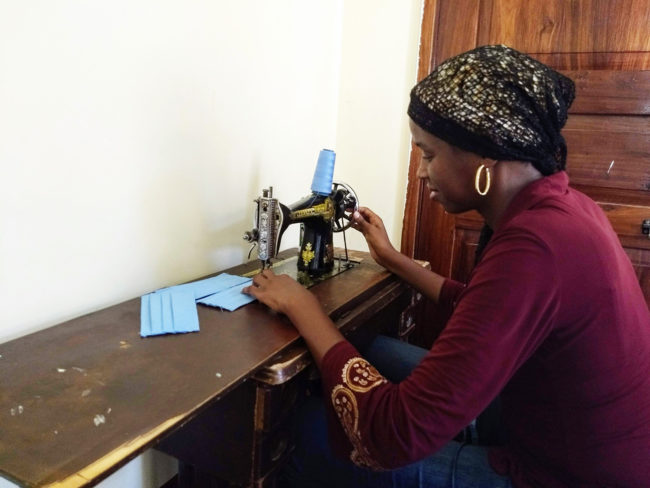
Loyce Veryser sewing masks
Judy Walter at the Lake House of Prayer
Judy has been providing spiritual direction and guiding retreats for local religious at the Lake House of Prayer in Ibanda Mabatini. Although they had to close the retreat house and daily meditation, which was regularly attended by about 20 men and women (mostly women actually), they quickly got a few of the regular parishioners involved in making masks from the comfort of their humble homes. Being first in the diocese to start, they were quickly flooded with orders when the archbishop, during an emergency meeting about preparedness, mentioned that the Lake House of Prayer was making masks for sale at cost.
The bulk of their orders came from bishops and priests within the archdiocese, chaplains at Bugando Hospital and parishioners from different parishes. They made and sold more than 1,000 masks and have a few hundred more on order. In the past week or so the market seems to be catching up, though, and homemade and factory-produced reusable masks are now being sold in shops, by street vendors and by people walking down the roads. The good news is there should be enough supply to cover the populous city of Mwanza!
Loyce Veryser making masks for teachers at school and their children
My wife, Loyce, teaches math at a secondary school in Mwanza. We’ve had an old treadle machine she inherited from her mother sitting in a corner of our household for a couple of years. Aside from making an alteration here and there, the machine and Loyce’s skill as a seamstress, have been mostly idle. With school closed and Coronavirus coming, Loyce jumped into action to make masks for many of her fellow teachers. When their children wanted masks as well, she shrunk the design slightly and made some junior versions.

